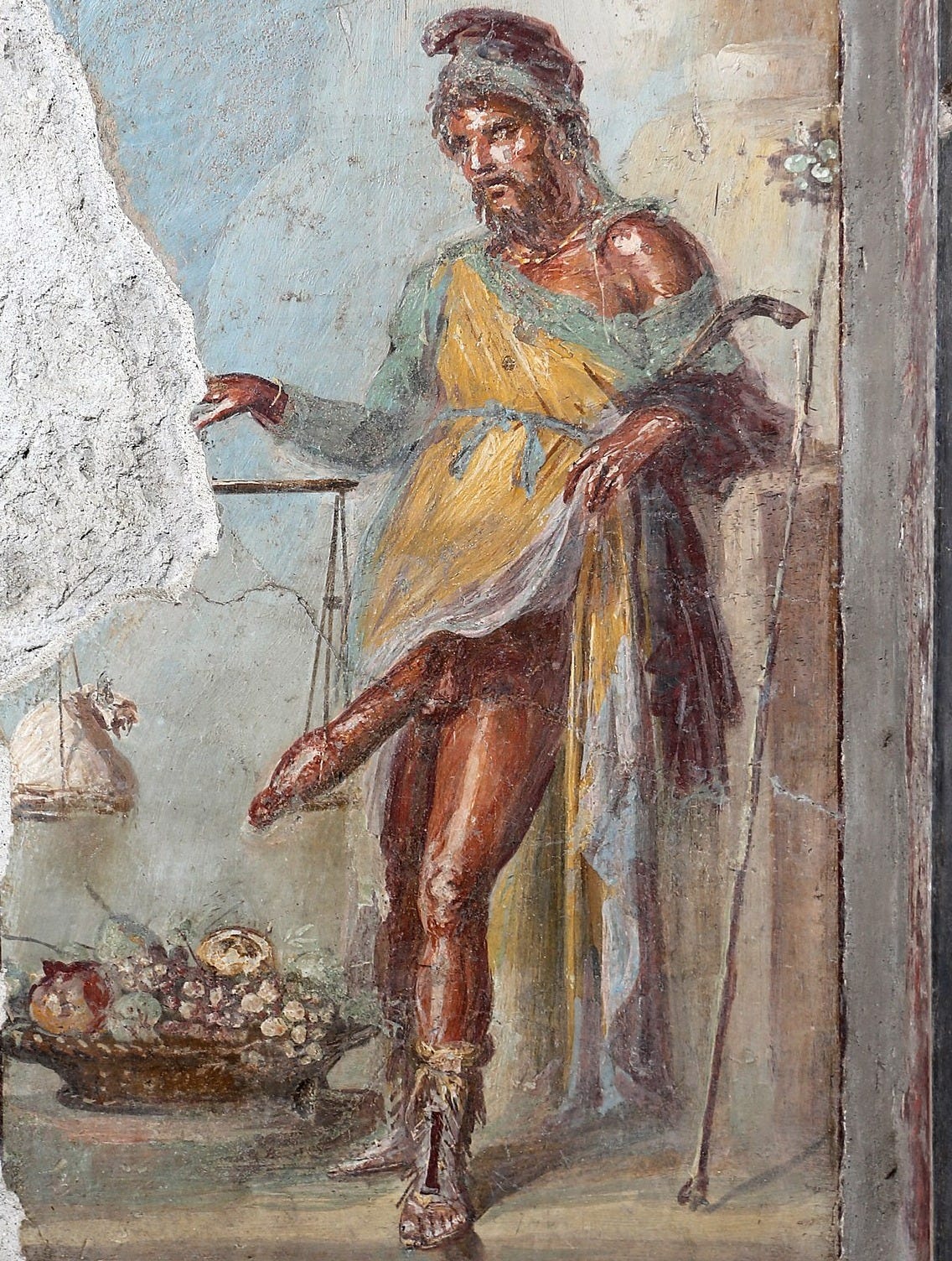“Unto a land flowing with milk and honey” is an oft quoted description of abundance from the bible, but the sacred nature of honey in particular goes much further back than that.
Bees are a running theme throughout ancient Greek mythos. When even ambrosia, the famed food of the Olympian gods, is thought by scholars and historians to have been honey based, we cannot possibly understate the importance of this foodstuff gifted to humanity!
As well as being delicious, honey is also medicinal, full of nutrients, and has been shown to promote testosterone production in men. Whilst bees feature in multiple tales of multiple gods, the story of Priapus is particularly salient in matters of virility.
The tale of Priapus
Priapus, son of Dionysus and Aphrodite, had a tragic start to life before becoming a deity of gardens, beehives, fertility, and masculinity.
During Dionysus’ expedition to India, Aphrodite broke her loyalty to him by sleeping with Adonis in his absence. Vexed by this affair, Hera punished Aphrodite by cursing her & Dionysus’s unborn child. The baby, Priapus, was born with hideous features, stunted height, a bad temper, and extremely enlarged genitals.
Other accounts tell instead that Hera was incensed by whisperings that Aphrodite was more beautiful than her, or that Priapus was secretly the son of Zeus (Hera’s ceaselessly philandering husband). Whatever the truth of the matter, poor Priapus bore the brunt of Hera’s rage.
The other gods refused to allow the cursed child to live on Mount Olympus and threw him down to earth, where he was left abandoned on a hillside. Shepherds passing by with their flocks eventually found him, and decided to raise him as their own in the nearby village.
Worship of Priapus as a deity only emerged in later times, when the curse of his peculiarly large genitals became a symbol of fertility and abundance in rural areas. He was also seen as a protector of flocks, vineyards, gardens, fields, and bees.
Pausanias, a Greek traveller and geographer born in 110AD, described Priapus as thus:
“This god is worshipped where goats and sheep pasture or there are swarms of bees; but by the people of Lampsacus he is more revered than any other god, being called by them a son of Dionysus and Aphrodite.”
Villagers placed statues of Priapus with his erect penis in fields, in hopes of bountiful crops, but also as a warning: the implication being that trespassers would be molested should they cross the boundary. In the Priapeia, a collection of anonymous poems written around the 1st century, the god boasts of the size of his manhood and insatiable virility, warning of the sexual punishment he would inflict upon anyone trespassing in his gardens or fields.
Offerings were made to him in the form of the first fruits of the season (particularly those of the vine), milk, and honey. There are even accounts of the occasional donkey being slaughtered and offered up to Priapus.
As detailed in Fasti by Ovid, a renowned ancient Roman poet, Priapus made all donkeys his enemy after one thwarted his attempts to take the beautiful nymph Lotis:
Keep reading with a 7-day free trial
Subscribe to How to Survive Modernity to keep reading this post and get 7 days of free access to the full post archives.


